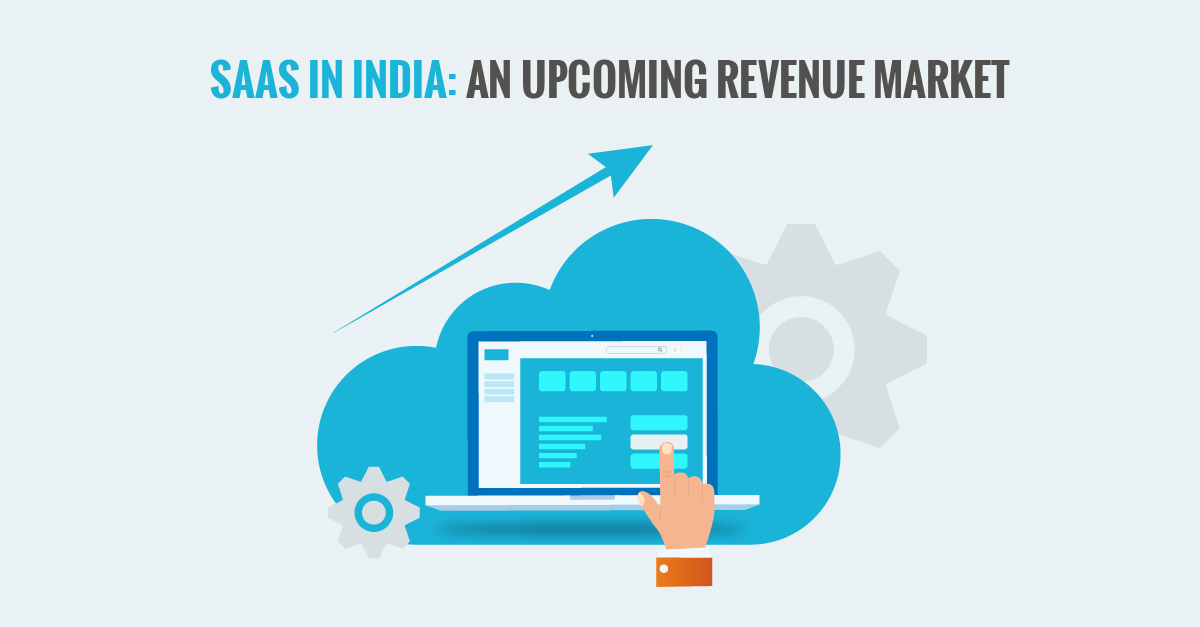
SaaS in India & How It Is Becoming An Upcoming Revenue Market
Posted On: February 18, 2020
In the decades before the liberalization of the early 1990s, low economic growth haunted the country like a steam-powered train going up a hill station. It was a different, difficult time in India. India has always been steeped in tradition, a country where conventional business models have been tried and tested time and time again. But breaking the stereotypes a group of innovative and ambitious start-ups who are redefining the way to exceed in the global market. The evolution of the internet in India made SaaS (Software as a Service) occupy the minds of corporate bosses in order to contribute to the revenue model.
Gartner predicts that the public cloud services market will grow to $266.4 billion, up from $227.8 billion in 2019. SaaS will be the biggest contributor in 2020 as its forecast is to grow to $116 billion. India has a very small share of that today but a recent NASSCOM report said that the Indian SaaS market will hit $3.3 billion-$3.4 billion by 2022 as estimated.
This is line with a 2016 prediction from a joint report by Google and VC firm Accel, that India is likely to become a $10 billion revenue industry with an eight percent share of the global SaaS by 2025. SaaS companies need their products to grow locally as India is one of the largest consumer markets at the moment. Improved cell phone connectivity, increased digital solutions for Goods and Services Tax (GST) and digital payments are supporting the growing demand.
Here is why SaaS in India has an opportunity to become a large revenue market
Cost Cutting–A More Convenient Approach:
Firstly, With the invention of SaaS technology, startup businesses need not invest in the hardware implementation to run their applications. In the SaaS system customers are provided with the APIs (application programming interface) and maximum work is done from the vendor’s side.
A Flexible Business Model:
The technological evolution in the businesses is on the intolerant edge. The successful businesses are adopting the constantly changing technologies. In order to expand their roots, They can be more sufficient towards their customers. The orthodox technology was painful for organizations to change the whole system promptly. The birth of cloud technology aspired all small and large organizations to be in the race.
Zero Infrastructure, Reusability & High Revenue:
The applications are usually available on the app-store. Therefore, other departments will be able to reuse them by customizing the same as per their needs. A SaaS vendor takes the responsibility of whole management available that the software can be used freely. Whereas the conventional IT system might take considerable time to install the software and also doesn’t give a guarantee of service. The up-gradation process also takes enormous amounts of time and cost in the traditional system while the cloud-based system comes with frequent up-gradation and variables. As a result, it plays a major role in reducing the cost and time of the organization.
Why Bet on SaaS in India?
India has skilled tech talent. India has ample and diverse tech talent consisting of developers, product managers, and engineers and some of them are upgrading their skillset in advanced technologies like AI, ML, and Robotics. Indian SaaS products are priced economical than their US and European counterparts and annual compensation for developers is reasonable as well. SaaS is an inherently secure and scalable business model for entrepreneurs. These new-age SaaS companies truly raise the bar collectively and give immense confidence to funders that the Indian product ecosystem including talent, networks, and a stable business atmosphere. Indian SaaS companies have a better understanding of domestic business conditions than their global counterparts. This advantage will be most effective towards customization & implementation to increase market share.
Conclusion
India’s cloud computing market is growing with amplifying technology. Consequently, businesses and consumers are embracing the fact. However, despite the obvious benefits the percentage share of SaaS remains humble. In conclusion, India needs progressive business minds including disruptive business taboos and more cordial policy-making. Therefore it will encourage greater investment in the ecosystem as a whole and India will show the way.



